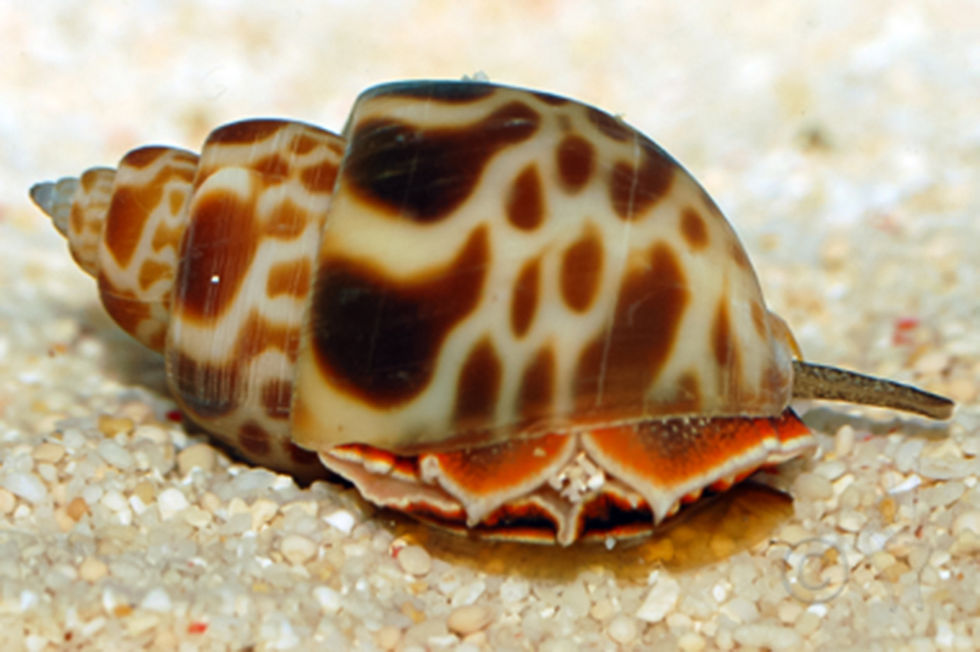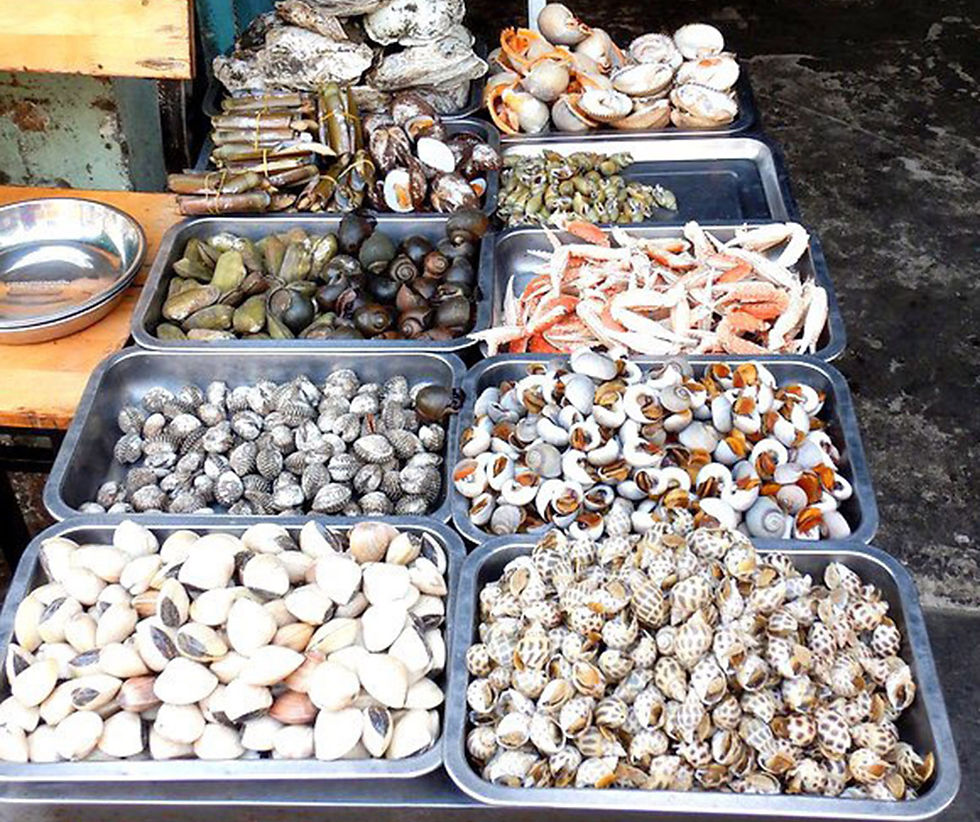Wedding Shells and Wannabe Junonias
- José H. Leal
- Nov 29, 2024
- 1 min read
Gastropod species of the genus Babylonia, the babylon snails, are common in the southwest Pacific and parts of the Indian Ocean. They are predatory snails with shells measuring between one to two inches in size, and marked by large, well-defined brown spots. Some of the species are popular in the marine aquarium trade in many parts of the world.

They are also a food staple in parts of Southeast Asia. Most likely following from their use as food, their shells are sold by the bushel in the Internet seashell trade. Nothing goes to waste. And I’ve seen Babylonia shells for sale in bins at the local seafood suppliers in Fort Myers Beach (prior to Hurricane Ian).

The Spiral Babylon (Babylonia spirata) and the Spotted Babylon (Babylonia areolata) are two species commonly found for sale in the global pet/aquarium and seafood enterprises. Curiously enough, they are some of the most common species of “wedding shells” here in Southwest Florida. Wedding shells" are non-native species abundant elsewhere and that are sometimes used by event planners and party organizers in SW Florida to “spice up” the beaches during weddings, family gatherings, and other occasions. I strongly suspect that their choice relates to their superficial similarity to Junonias (!) Tourists and visitors find them only to bring them to the Museum for identification. Needless to say, some of them get disappointed (or even upset) when told that they are not Junonias, and but a non-local specimens “planted” on the beach!




That is really attention-grabbing, You’re a very professional blogger.I’ve joined your feed and sit up for in quest of more of your wonderful post.Additionally, I have shared your site in my social networks
شيخ روحاني 00491634511222
شيخ روحاني
رقم شيخ روحاني
شيخ روحاني 00491634511222
Berlinintim
bestbacklinks
backlinkservices
buybacklink
شيخ روحاني شيخ روحاني رقم ساحر سعودي جلب الحبيب جلب الحبيب جلب الحبيب رقم ساحر حقيقي جلب الحبيب Berlinintim casinoberlinBerlinintimجلب الحبيب جلب الحبيب جلب الحبيب جلب الحبيب جلب الحبيب جلب الحبيب جلب الحبيب جلب الحبيب جلب الحبيب جلب الحبيبجلب الحبيبجلب الحبيب جلب الحبيب جلب الحبيب جلب الحبيب. ايات لجلب الحبيب العنيد . عظم الهدهد سريع الجلب للنساء . السحر المغربي لجلب الحبيب بالصورة . سورة الهمزة لجلب الحبيب .جلب الحبيب مجرب وصحيح . جلب الحبيب بسورة الفاتحة في…
In 2025, outsourcing marketing is becoming a smart choice for many businesses. Whether you are a new startup trying to grow your brand or a big company looking to work more efficiently, outsourcing can help. With new AI tools and automation, businesses can now access expert knowledge and scale quickly. This blog will guide you through outsourcing marketing in 2025 the right way. You will learn how to make a solid plan, find the best partners, and ensure your brand stays strong while enjoying the benefits of outsourcing.
Narrative Writing is all about writing stories. A narrative can be either nonfiction or fiction, or it can fall somewhere in the middle and be a dramatized account of real events, historical fiction, or a semi-autobiographical story. Hence, a composition is considered to be narrative writing if it follows a narrative structure and tells a tale.
Online assignment help is a reliable solution for students facing tight deadlines or struggling with challenging coursework. This service connects you with subject matter experts who provide tailored assistance, ensuring your assignments meet academic standards. Whether it’s essays, research papers, or complex projects, online assignment help offers high-quality, plagiarism-free solutions to enhance your grades.
What a wonderful way to incorporate nature into a wedding! Using shells not only adds beauty but also a unique personal touch to the ceremony. I especially love the idea of using Wooden Table Signs to complement the theme. They could perfectly match the natural, beachy vibe of the shells while also adding a rustic feel to the decor. These small details really elevate an event and make it stand out. I can already imagine how stunning the setup would look with beautiful shells and thoughtful signs guiding guests to their seats. Definitely some great inspiration for any coastal wedding!